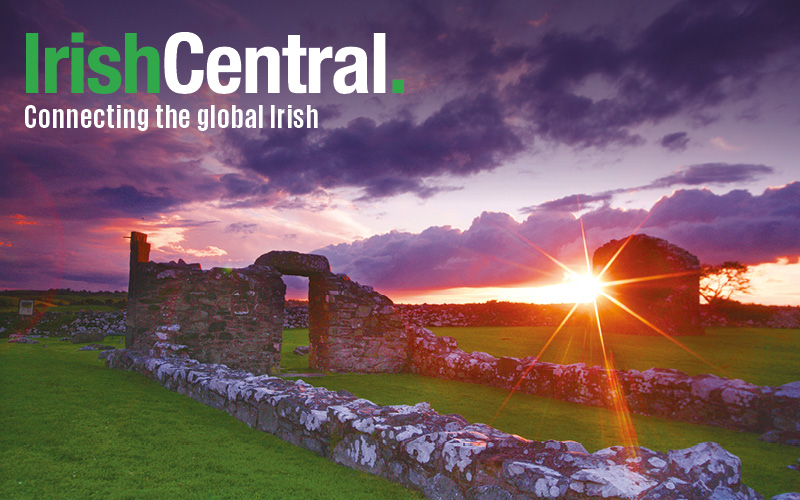A good mate put the aging process into perspective the other night as we lamented the passing of time – ironically at the end of an afternoon when a visit to a bookstore and a record shop smacked of the good old days.
It was quite a pleasure, I have to say, to spend time perusing the shelves on the bookstore that is housed in the basement of the iconic Dublin shop Arnott’s.
To follow that interlude – and the purchase of Roddy Doyle’s follow-up to "The Commitments" – with a visit to the newly re-opened HMV on Henry Street was a rare treat, so much so that I even remarked to the shop assistant that I had managed to combine a bookstore and a music store visit without touching a computer or a mouse!
He did laugh at that Dublin in the rare auld times story and my Guinness mate, now also a newly elected member of the 50s club, smirked as well when we discussed my 'dream' day later that evening with a symbolic pint of plain.
He also told me that one of the amazing things about growing old is that you can remember something that happened 40 years ago, but you can’t recall what happened last week. And it’s true.
I can name the 1971 Arsenal FA Cup winning team at a drop of a hat – and not just because I now own a copy of the final win over Liverpool on DVD thanks to a previous visit to a HMV shop.
I can indeed tell you the name and number of every Arsenal player on that team because I was young at the time, only seven, and it really meant something to be able to watch a live football match on the television – and in color at that.
The excitement that day was almost as palpable as the Sunday afternoon when we watched the first ever episode of "Sesame Street" arrive on our RTE screens from America!
Television was a big deal in our lives in those far off days. And live sport on the small screen was a rarity.
We got edited highlights from England on "Match of the Day" on the BBC on a Saturday night, and on the "Big Match" on UTV the following afternoon.
Once in a blue moon, a live game would be screened in Ireland, more often than not a live Irish match featuring the likes of Giles and Treacy and Dunne.
The FA Cup final was something special, something unique. From the moment you woke up on Cup final day, early in those mornings, you could watch the events of the day unfold in the build-up to the big kick-off at magical Wembley.
We saw the players eating their breakfast, strolling around their hotels, boarding the bus to the Twin Towers. We saw every kick, every emotion, every goal. And we lapped it up because it was live, because it was right there in front of us.
Nowadays live football is the norm. So much so that I can barely tell you who played in the last FA Cup final – Wigan against Manchester City, I know – never mind name the teams from one to 11.
Thanks to satellite television and pay-per-view channels, the likes of FoxSports and ESPN and Setanta in your part of the world, I can watch football morning, noon and night.
The 1971 me would have loved that idea all those years ago. And even though time is a much rarer commodity in my busy life these days, far busier than it seemed to be for my parents all those years ago, I do love the idea of being able to watch live football – and golf – from around the world anytime I so choose.
Thanks to satellite television, I can come home from work late on a Sunday night and watch the highlights of that day’s football from Spain and Portugal and Italy, never mind England.
Of course I have to pay for the privilege, but most things in life cost money these days – even the water that comes from the ground thanks to the Irish government charges.
And I have a choice to make when it comes to paying for the right to see live football from across the world. If I don’t want to pay I don’t have to — not a choice I have when it comes to paying the license fee to watch our state broadcaster RTE.
I tell you all of this because many mouths are working overtime in Ireland right now with their criticism of the broadcasting deal set to be sealed between the GAA and Sky Sports, a station owned by my boss Rupert Murdoch just to be clear about it.
Under the deal, as I understand it, Sky will broadcast about a dozen championship games a year live on their paid for platforms – but not the All-Ireland finals and semifinals which will remain free to air.
Many pious GAA types are predicting the end of their game as they know it the minute Croke Park accepts the Sky dollar. Rubbish.
The money Sky invests in the GAA will only benefit the GAA. Their deal will only increase the worldwide audience available to Gaelic football and hurling.
And someday soon, thanks to this deal, you will be able to arrive home from work, switch on the satellite box and watch Meath beat Dublin in Croke Park without having to pay an admission fee to see it in your local Irish bar.
Those slamming the GAA’s dealings with Sky don’t live in the real world. And they don’t have to take out a subscription if they don’t want to.
That’s called a free market – or a democracy if you prefer.
(Cathal Dervan is sports editor of the Irish Sun newspaper in Dublin)




Comments